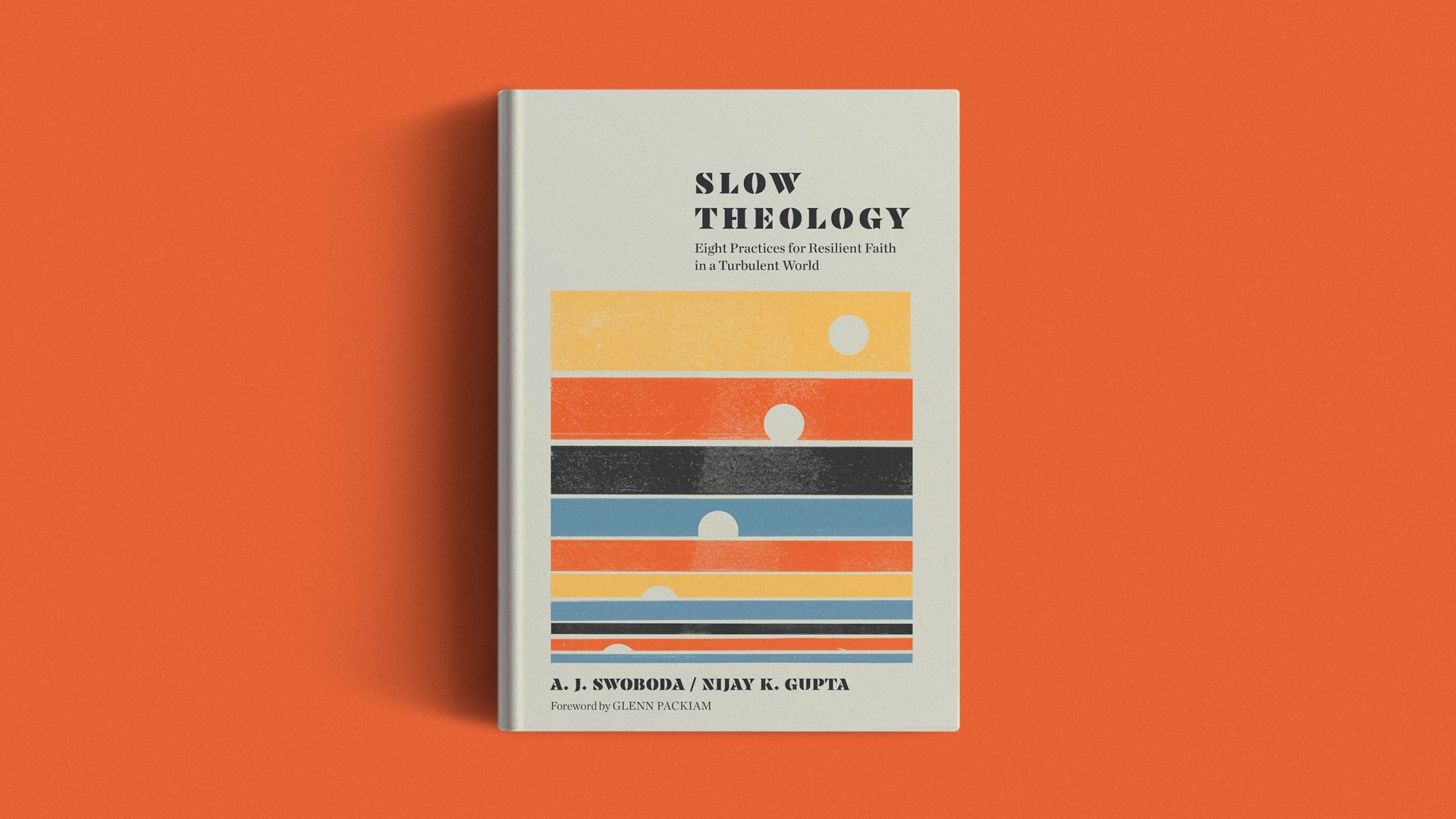I don’t use social media. It’s not because I’m strong but because I’m weak.
Social media is a “hot” environment where producing content requires a quick wit, constant attention, and clever takes, none of which I am good at. But more than that, I know that it would swallow me up into its countless debates, that my anxiety would spike, that moments of rage would produce comments later regretted, and that inevitably, I would form all kinds of strong but unfair opinions while losing myself in an endless scroll.
It’s true that social media platforms can expose abuse, providing space for the voiceless to speak up against corrupted people and disordered power structures within society and the church. But regrettably, exposure of misdeeds or problems on hot media often produces hot resistance instead of needed institutional change, leaving people angry, disillusioned, and alienated. In that environment, legitimate criticisms are often seen as empty hostility, producing only more heat.
Rather than giving up on the church or institutions, we need to cool down the environment. Slow Theology authors A. J. Swoboda and Nijay K. Gupta recognize how our culture of speed and hot media inevitably focuses on problems and scandals while rarely producing healthy, constructive growth. As they wisely note, “Deconstruction in the proper dose can save one’s faith, but the wrong dose can be fatal.”
Hot environments can easily provoke rash and destructive action. In a hot media environment, we mustn’t toss the church aside but instead love it and tenderly care for it. Any criticisms must be given and received in that spirit, while we remember that we are the church.
Speaking clearly, compassionately, and truthfully into hot media culture, Swoboda and Gupta encourage eight practices they believe can foster “resilient faith in this turbulent world.” They have it exactly right when they ask readers, “What if, by God’s grace, every new question we asked was not a problem? What if it was just a way for our faith to become deeper?”
The first practice they recommend is to learn to linger with God. Our Creator has remained the sustainer of the universe for ages. God isn’t in a panic or rush—after all, he invented time. Only by spending slow time with God can we step away from panic and receive strength to push against injustice and sin.
Second, to appreciate the process that accompanies healthy theological reflection, they encourage us to“take the long view of faith” without expecting to know everything immediately. Convictions normally grow, evolve, and deepen. Furthermore, it is unreasonable to believe that each of us must personally study every doctrine and develop convictions on each point. Informed personal convictions can be useful, but only false piety has the hubris to expect strong opinions on all topics.
Third, they recommend cultivating both a sabbath attitude and a sabbath practice. Rhythms of work and rest teach us that we don’t need to express opinions on every matter and that not being able to help with some vital cause does not make us bad people. Rest reminds us that we can’t control the universe nor the shortcomings in the church.
Their fourth recommended practice is to “ponder the mysteries.” One reason people leave the faith, especially if they grew up in theologically insular spaces, is that they have felt lied to; they were given the impression that Christianity had easy answers to all the hard questions, whether about God, the Scriptures, or ethical issues. When believers discover that clichés and easy answers don’t survive the difficulties of life, they can be tempted to give up their faith entirely.
Slow Theology, however,reminds us that discovering complexity, paradox, and mystery can move us toward deeper faith, humility about ourselves, and awe regarding God. Swoboda and Gupta argue that, unlike a secret, which tries to keep people out, in theology, “mystery intends for those who are in it to keep seeking.” We should not confuse this view with sloth or sloppy thinking, since “a slow theology is not a lazy theology.” Instead, it is meant to approximate what Anselm of Canterbury (c. 1033–1109) meant by the phrase “faith seeking understanding.”
Thus, we arrive at lament, the fifth practice, where we talk through our difficulties with God. Questions about the prosperity of the wicked, economic injustice, and the suffering and mistreatment of the most vulnerable echo concerns we find in Scripture.
When God’s people in Scripture ask raw and honest questions of the Lord (Gen. 18:23–25; Ex. 5:22–23; Job 7:20–21; Jer. 12:1; 20:7), they don’t find their God to be an indifferent deity but a God who pronounces judgment, expresses compassion, and promises one day to make all things right (which affirms that things are not yet right). God cares more about injustice and abuse than we do. When we lament, he is quick to hear and promise that, in the end, he will set heaven and earth right.
The authors then encourage us in our lamenting to run toward problems rather than away from them—the sixth practice. They obviously do not recommend that an abuse victim return for more abuse, but they encourage us to wrestle with problems rather than ignore them, and to do this with God and as part of Christ’s body, which naturally takes us to our next practice which emphasizes the need for community, but present and historic.
Seventh, Swoboda and Gupta remind us of the practice to “believe together,” emphasizing our faith and life require the church. Too often, our theology and faith are overly individualistic. Yes, Christian faith is personal, but, thanks be to God, faith doesn’t need to rest on a comprehensive personal theology. Creeds, confessions, and denominations remind us we depend on others both across history and across the globe to inform, sustain, and grow our faith.
Creeds and confessions are now often viewed with skepticism, and the result is that each of us feels the weight to develop our own theology. “But doing theology alone was never God’s intent,” conclude our authors. In fact, doing so “increases the chance that we may distort the church’s message that has been handed down for generations.” It is good and right for us to wrestle with difficult doctrines and ideas, but we need each other—and an abundance of time—to handle those questions well.
Finally, the authors encourage us to never give up. We need each other to persevere, and this includes those who are not able-bodied or who live outside of neurotypical categories. Accordingly, “the slowest person in any church is almost always the one who exposes the theology of that church.”
Only with the full body of Christ do we slow down and discover areas in our theology and life that need revision. In this process, we are equipped to finish the race together. The authors beautifully interpret Jesus accordingly in John 15: “Make yourself at home in my household of love forever” (v. 9, MSG).
Our hot media environment and world need to be cooled by slow theology. Swoboda and Gupta call us to resist what is trendy and instead invest in what is local, relational, and embodied. Doing so allows us to cultivate a healthy appreciation for history, to develop the ability to think critically about our past and present, and to form a theologically informed habit of dwelling in love.
We should encourage “deconstructions” that reject idols, but not those that reject Jesus and his earthly bride. Dorothy Day once wrote, “As to the Church, where else shall we go, except to the Bride of Christ, one flesh with Christ? Though she is a harlot at times, she is our Mother.” We have no other mother; we need the church, even while considering its deep imperfections.
Real, abiding, life-giving love is present and patient with others; it willingly endures great trials and suffering because of a larger vision and hope. Don’t lose heart: God is patient with us, and we do well as individuals and as the people of God to grow patiently in grace and truth.
Kelly Kapic is Honorary Chair of Theology and Culture at Covenant College. His most recent books are You Were Never Meant to Do it All and You’re Only Human.

















